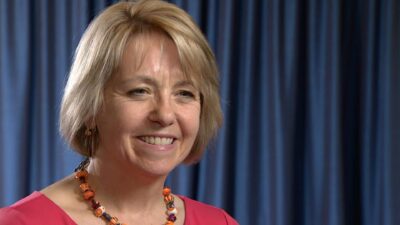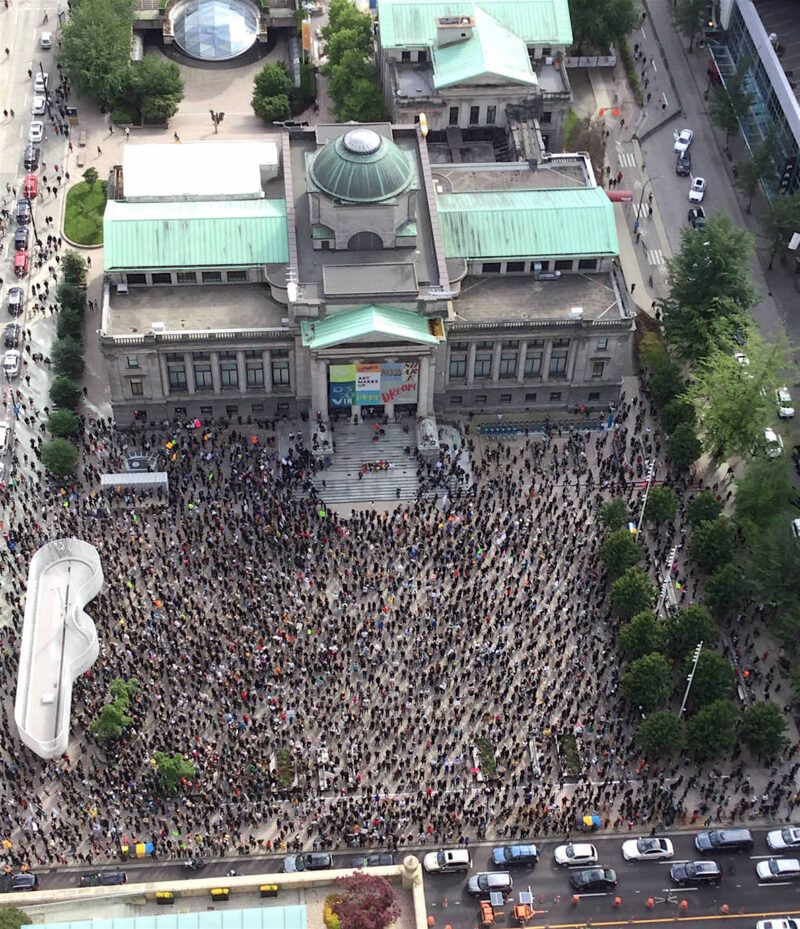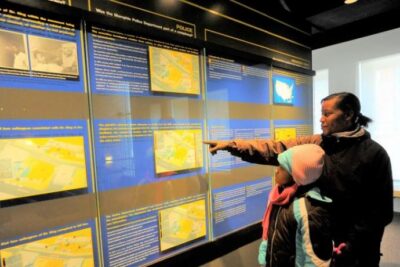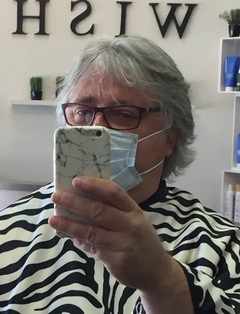Letters from the Pandemic 20: Two Sisters From Alabama
Letters from the Pandemic 20: Two Sisters From Alabama
by Tom Morton
*

When I think about 2020 two events come to mind: the Covid-19 Pandemic and the Black Lives Matter movement. Both events share stories of humanity, sacrifice, and death.
When I think of the Covid-19 pandemic my mind does not focus on the statistical analysis and medical guidance that our Public Health Officer, Dr. Bonnie Henry, routinely shares with British Columbians. I appreciate the importance of statistical analysis and the medical directives initiated by Dr. Henry as she leads the fight against Covid-19.
However, when I see a tear in her eye, hear her voice tremble, or witness her excitement when progress is made in the fight my mind snaps to attention. The science is the science, but her humanity reflects her deep innate compassion. The sacrifice of our medical professionals and front line workers and the consequent loss of life due to the virus is heartbreaking.
When I think of the Black Lives Matter movement my mind does not focus on the political or socio-economic climate in Canada and the United States. I think about humanity: the history of racial unrest, protests, riots, the consequent loss of life, and my encounter with two sisters from Alabama.


In June 2009, after business meetings in Little Rock, Arkansas, I travelled to Memphis, Tennessee, for a few days of vacation. I visited the National Civil Rights Museum that was built adjacent to the Lorraine Motel, the historic landmark where Dr. Martin Luther King was executed. When I entered the museum I experienced a solemn feeling of quiet, similar to a church or library. People walked peacefully throughout the museum, speaking in soft tones as they viewed numerous exhibits: photographs, clothing, tools, household goods, and instruments of death. These haunting images are burned into my memory.
Each exhibit, with a written narrative, tells a story. Vividly illustrated are photographs of families lynched from trees, homes burned to the ground, and towns destroyed as the KKK supremacists celebrated. Photographs of slaves, tortured while working in farmer’s fields, are also displayed. I had the opportunity to sit on the same bus as Rosa Parks. I stood on the balcony of the Lorraine Hotel where Dr. Martin Luther King was shot and I peeked through a window into the room he occupied the day of his murder.

I witnessed the profound sadness of people viewing the exhibits. While looking at a photograph of one of the many atrocities that defined the KKK, two elderly women stood beside me and quietly cried. The photograph of a lynching incited a memory from their lives. When I asked if they needed help, the sisters from Alabama graciously shared the personal story behind their tears and the impact of this history on their lives. They knew what it is like to live in fear for their lives: they witnessed executions of family and friends at the hands of the KKK. After a few minutes of quiet heartfelt conversation with the sisters, they assured me they were fine and thanked me for asking; however, the expression on their faces and tears in their eyes exposed their never-mended broken hearts. Their story touched my heart, similar to the ongoing stories of loss from the Black Live Matter movement and the fight against Covid-19.
That evening, alone in my hotel room, I could not stop thinking about the sisters from Alabama and our conversation at the museum. They had experienced the consequences of racial violence and heartbreak at the hands of white supremacists; however, that day they also experienced a naïve white male tourist asking if they needed help. I wonder if the sisters remember our conversation.
I would like to share the impact their story had on my life and thank them for their humane acceptance of an outsider from Canada. Today, I wonder what the sisters think when they see George Floyd, a knee across the back of his neck, crying out, “I can’t breathe.”
To the sisters from Alabama, this is my letter of gratitude.
*

Tom Morton is a member of a wonderfully diverse group of creative people with various personal and professional backgrounds in the Graduate Liberal Studies Masters Degree program at Simon Fraser University. Tom and his family accepted a corporate move from Winnipeg to the Lower Mainland in 1995, eventually moving to White Rock. Retiring from a 35-year business career in 2018, Tom is now active with GLS studies, family travel, music and guitar, sports, motorcycle touring, and volunteering with the Prostate Cancer Foundation of British Columbia West Coast Motorcycle Ride to Live.
*
The Ormsby Review. More Books. More Reviews. More Often.
Publisher and Editor: Richard Mackie
The Ormsby Review is a journal service for in-depth coverage of B.C. books and authors. The Advisory Board consists of Jean Barman, Robin Fisher, Cole Harris, Wade Davis, Hugh Johnston, Patricia Roy, David Stouck, and Graeme Wynn. Scholarly Patron: SFU Graduate Liberal Studies. Honorary Patron: Yosef Wosk. Provincial Government Patron since September 2018: Creative BC
“Only connect.” – E.M. Forster
3 comments on “Letters from the Pandemic 20: Two Sisters From Alabama”
Thanks Tom. You mentioned this experience in class, but I really appreciated the full background and story.
Nina
Tom,
Thank you for your piercing insight. As I type this text through my watery eyes, I trust that these shared events from your life offer a lens to others for understanding thar yields hope and compassion of humanity.
Your friend,
Clayton
Thank you my friend.